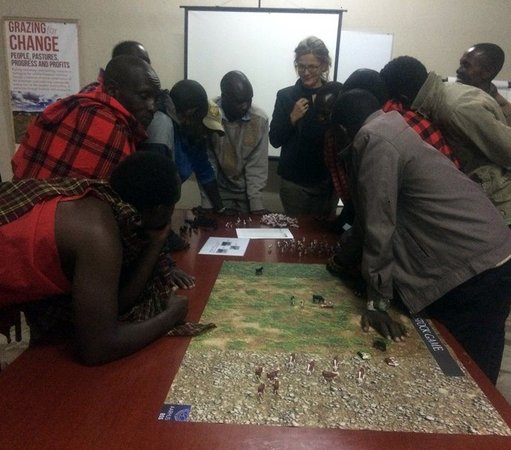Rethinking Community Management and Design
ICOA researchers use organizational design to solve real world challenges
A group of ICOA researchers are part of the overall Maasai Mara Development and Research Initiative (http://maasaimarascience.org/).
Using organizational design theory to solve real world challenges, their project examines how collaboration develops in a collaborative community, marked by differential interests and information asymmetries.
In a framed field experiment, teams of Maasai livestock owners play a board game related to livestock allocation decisions. The board game was developed specifically for the project by Erik Larsen and Dorthe Håkonsson, to gather real life data on cooperative decisions related to livestock management.
Based on data from this experiment, we examine team decisions over time and draw inferences about the relationship between governance mechanisms and teams’ ability to develop collaborative decisions without hierarchical intervention. (Ecosystem) viability is used as a measure of collaboration.
We find that learning and short-term feedback on the consequences of own and other teams’ decisions is essential for team collaboration to develop. While cultural dispositions are significant, the effect of learning is robust against cultural effects. Based on this finding, we argue that current collaborative community models are promising as a governance form, but should be extended to include possibilities of learning as a governance mechanism.
Watch a video about the project: Organizational design as a tool in solving collaborative challenges related to natural resource commons
Read more about the project: Livestock Management in Maasai Mara – A Tragedy of the Commons?
